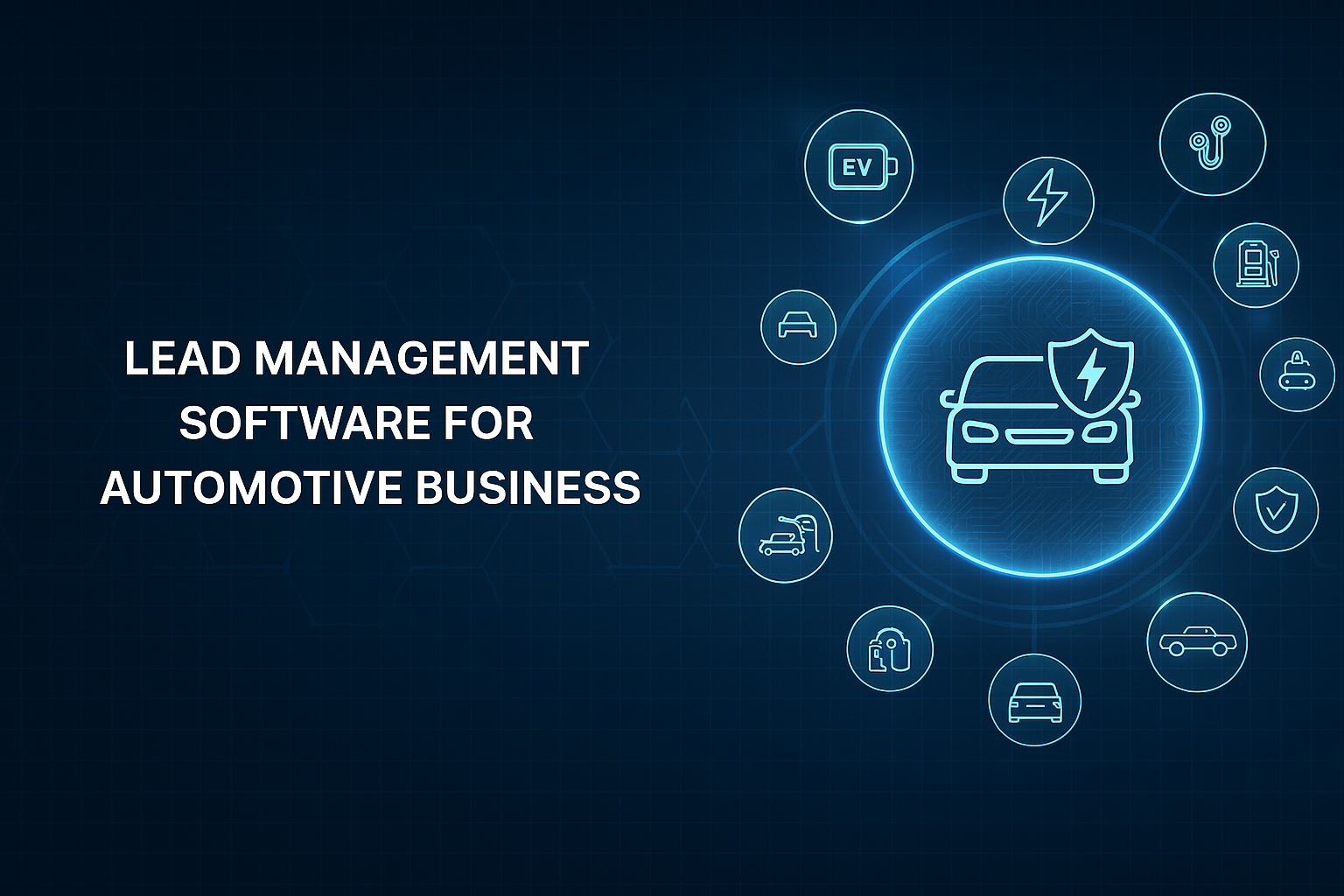The automotive industry is highly competitive, and every lead counts. Whether you run a car dealership, an auto financing company, or a vehicle rental business, robust lead management software is essential for converting potential customers into sales. Without an efficient system, businesses risk losing valuable prospects due to mismanagement, delayed follow-ups, or ineffective communication.
Choosing the right lead management software tailored to your automotive business can significantly impact efficiency, sales performance, and customer satisfaction. This guide will walk you through the key factors to consider when selecting the best solution for your dealership or automotive enterprise.
Why Your Automotive Business Needs Lead Management Software
The automotive sales process is different from many other industries. It involves high-value transactions, multiple customer touchpoints, and a lengthy decision-making process. Here’s why lead management software is crucial:
- Better Lead Tracking: Organizes and categorizes leads based on interest, engagement, and buying intent.
- Automated Follow-Ups: Ensures timely communication with potential buyers, reducing the risk of lost sales.
- Improved Sales Efficiency: Helps sales teams prioritize high-potential leads and close deals faster.
- Data-Driven Insights: Provides reports and analytics to refine sales strategies and improve conversion rates.
- Enhanced Customer Experience: Ensures personalized communication, increasing customer trust and satisfaction.
Essential Characteristics to Consider in Lead Management Software
When selecting lead management software, it’s essential to consider features that will enhance your sales process. Here are some of the most critical capabilities:
1. Centralized Lead Database
A good lead management software should allow you to collect, store, and manage all leads in a single database. It should provide a structured system for categorizing leads based on source, location, customer preference, and buying behavior.
2. CRM for Car Dealerships
Having a specialized CRM for car dealerships is crucial for automotive businesses. Unlike generic CRM systems, a dealership-focused CRM provides:
- Inventory integration
- Vehicle history tracking
- Service and maintenance records
- Automated appointment scheduling
A CRM for car dealerships enhances communication and provides better customer insights, leading to improved sales efficiency.
3. Automated Lead Scoring and Prioritization
Not all leads have the same potential. Some customers are ready to purchase immediately, while others are still in the research phase. A good lead management software should offer automated lead scoring based on customer behavior, engagement level, and past interactions. This helps sales teams focus their efforts on high-converting leads.
4. Multi-Channel Lead Capture
Your software should integrate with multiple lead sources, including:
- Website inquiries
- Social media platforms
- Email campaigns
- Third-party automotive marketplaces
- Offline events and trade shows
A seamless integration across channels ensures that all leads are captured and tracked efficiently.
5. Automated Follow-Ups and Workflow Management
An efficient system should allow automated follow-ups via emails, SMS, and calls. Lead nurturing workflows should be customizable so that sales teams can tailor follow-up sequences based on the lead’s stage in the buying journey.
6. Integration with Marketing and Inventory Systems
A robust lead management software should integrate with your:
- Digital marketing tools: To track campaigns and measure ROI.
- Inventory management: To display real-time vehicle availability.
- Customer feedback system: To monitor satisfaction and gather insights for improvement.
7. Mobile Accessibility
A mobile-friendly CRM for car dealerships allows sales teams to access lead information on the go, schedule test drives, and update customer records instantly, ensuring better responsiveness and efficiency.
How to Choose the Best Lead Management Software for Your Dealership
With so many options available, selecting the right lead management software can be overwhelming. Here’s how to select the best option:
1. Assess Your Business Needs
Different automotive businesses have different requirements. Define your priorities, such as:
- Do you need a simple contact management system or a full-fledged CRM for car dealerships?
- Are automated lead scoring and follow-ups a priority?
- Do you require integration with existing marketing platforms?
2. Compare Features and Pricing
Make a list of potential software providers and compare their features, ease of use, and cost-effectiveness. Some software solutions charge a one-time fee, while others operate on a subscription model. Consider whether the pricing aligns with your dealership’s budget and growth plans.
3. Check User Reviews and Case Studies
Look for testimonials, reviews, and case studies to understand how the software performs in real-world dealership operations. A tool that works well for other automotive businesses is likely to meet your needs too.
4. Request a Demo or Free Trial
Most lead management software providers offer a free trial or demo. Testing the software firsthand allows your team to assess its functionality, ease of navigation, and efficiency before making a commitment.
5. Ensure Reliable Customer Support
The last thing you want is to invest in a system that lacks reliable support. Choose a provider that offers:
- 24/7 technical assistance
- Comprehensive training materials
- Regular software updates
Future Trends in Automotive Lead Management
The automotive sales industry is evolving, and lead management software is constantly improving. Here are some trends to watch:
- AI-Powered Lead Scoring: AI-based algorithms are helping dealerships analyze customer behavior and predict purchase intent.
- Chatbots for Lead Engagement: Automated chatbots can handle initial customer queries, improving engagement rates.
- Voice and Conversational AI Integration: Voice-assisted CRM tools are making it easier for sales teams to update records and retrieve lead information hands-free.
- Enhanced Data Security: With increasing cybersecurity threats, modern software solutions are focusing on secure data management and compliance.
Choosing the right lead management software is crucial for any automotive business looking to streamline its sales process and enhance customer engagement. A well-integrated CRM for car dealerships ensures that leads are properly managed, follow-ups are automated, and sales teams can work more efficiently.
For a comprehensive solution tailored to automotive businesses, explore Tiez Interactive and discover how advanced lead management technology can drive your dealership’s success.




